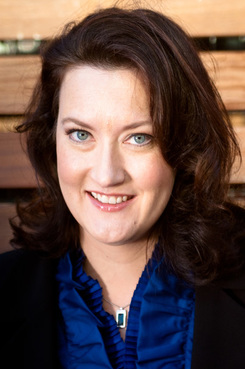Texas Bar's Incubator Expands Statewide, Goes Virtual
The Texas Opportunity and Justice Incubator, a State Bar of Texas program meant to close the access-to-justice gap by training lawyers to represent low- and middle-income clients, is going virtual so it can expand across the state and accept more lawyers into the program.
October 03, 2019 at 12:55 PM
4 minute read
 (Photo: Freedom Studio/Shutterstock.com)
(Photo: Freedom Studio/Shutterstock.com)
A legal incubator that's trained 20 attorneys in two years to represent low- and middle-income Texans is expanding to double or triple the number of lawyers in its program.
The Texas Opportunity and Justice Incubator, a program of the State Bar of Texas meant to help close the justice gap in which most people can't afford to hire attorneys, is also untethering itself from its physical location in Austin. It's extending its online reach and going virtual so that lawyers from across the Lone Star State can participate in its business, technology and marketing education curriculum.
Applications for the expanded program are due by Oct. 21, and the lawyers who are accepted will begin their training in January 2020.
 Anne-Marie Rábago director of the Texas Opportunity & Justice Incubator (Courtesy photo)
Anne-Marie Rábago director of the Texas Opportunity & Justice Incubator (Courtesy photo)Texas Lawyer spoke with incubator director Anne-Marie Rábago about the program expansion. Here are her answers, edited for brevity and clarity.
From what I understand, the incubator is going virtual by adding an online learning component. What's this all about?
As we move forward with providing the services, resources and training to lawyers here in central Texas, we were increasingly getting applicants from other parts of the state and having to say, "Are you able to move?" Lots of folks say, "No, I can't move. I have my family and my community." That is understandable.
Something we've seen with the incubator movements all across the country is the space component of providing the lawyers an office in which to work is not something they make use of.
We initially moved from providing all the lawyers with a dedicated desk to a model used by lots of large companies across the country called hoteling or hot desks. You didn't have your own desk, but had a desk if you came in the office. Over the last several months, we watched usage, and the numbers kept going down, because the lawyers want to work where the lawyers want to work. That seems like something appealing to the next generation coming into our ranks.
That created a perfect storm of lets look what we can do if we do away with the space offering and instead make this a program delivered online virtually.
Will you accept more people into the program?
Yes, it's part of the plan. We're going to change from an 18-month model to a 12-month model and recruit one cohort per year. We are looking now for 20 to 30 lawyers across the state who will come into this program in January.
How are you changing your requirement of how much experience that a lawyer should have to enter the program?
We used to market the program to folks with zero to five years of licensure. That was another point that folks would ask us about: "Why are you only allowing new lawyers to be in this program?" We heard that and at this point are targeting our e-blasts and marketing to lawyers with zero to 10 years of licensure. We are willing to accept anyone with a desire to build a law practice aligned with our mission.
What is your advice for making an application that rises to the top and wins admission?
We really are looking for what I'd label the entrepreneurial spirit: the true desire to build a business and an understanding of what that's going to take by someone from a personal and professional standpoint. They need an idea of why they want to serve, and how they want to serve those clients, and some sense of what that is going to take. It really is a lot of hard work and dedication that you're investing in yourself because you're building something that is yours. We look for the folks who have that roll-up-your-sleeves and get-to-work sensibility.
This content has been archived. It is available through our partners, LexisNexis® and Bloomberg Law.
To view this content, please continue to their sites.
Not a Lexis Subscriber?
Subscribe Now
Not a Bloomberg Law Subscriber?
Subscribe Now
NOT FOR REPRINT
© 2025 ALM Global, LLC, All Rights Reserved. Request academic re-use from www.copyright.com. All other uses, submit a request to [email protected]. For more information visit Asset & Logo Licensing.
You Might Like
View All
Haynes and Boone Expands in New York With 7-Lawyer Seward & Kissel Fund Finance, Securitization Team
3 minute read
'None of Us Like It': How Expedited Summer Associate Recruiting Affects Law Students and the Firms Hiring Them

Big Law Firms Sheppard Mullin, Morgan Lewis and Baker Botts Add Partners in Houston
5 minute read
Trending Stories
- 1Munger, Gibson Dunn Billed $63 Million to Snap in 2024
- 2January Petitions Press High Court on Guns, Birth Certificate Sex Classifications
- 3'A Waste of Your Time': Practice Tips From Judges in the Oakland Federal Courthouse
- 4Judge Extends Tom Girardi's Time in Prison Medical Facility to Feb. 20
- 5Supreme Court Denies Trump's Request to Pause Pending Environmental Cases
Who Got The Work
J. Brugh Lower of Gibbons has entered an appearance for industrial equipment supplier Devco Corporation in a pending trademark infringement lawsuit. The suit, accusing the defendant of selling knock-off Graco products, was filed Dec. 18 in New Jersey District Court by Rivkin Radler on behalf of Graco Inc. and Graco Minnesota. The case, assigned to U.S. District Judge Zahid N. Quraishi, is 3:24-cv-11294, Graco Inc. et al v. Devco Corporation.
Who Got The Work
Rebecca Maller-Stein and Kent A. Yalowitz of Arnold & Porter Kaye Scholer have entered their appearances for Hanaco Venture Capital and its executives, Lior Prosor and David Frankel, in a pending securities lawsuit. The action, filed on Dec. 24 in New York Southern District Court by Zell, Aron & Co. on behalf of Goldeneye Advisors, accuses the defendants of negligently and fraudulently managing the plaintiff's $1 million investment. The case, assigned to U.S. District Judge Vernon S. Broderick, is 1:24-cv-09918, Goldeneye Advisors, LLC v. Hanaco Venture Capital, Ltd. et al.
Who Got The Work
Attorneys from A&O Shearman has stepped in as defense counsel for Toronto-Dominion Bank and other defendants in a pending securities class action. The suit, filed Dec. 11 in New York Southern District Court by Bleichmar Fonti & Auld, accuses the defendants of concealing the bank's 'pervasive' deficiencies in regards to its compliance with the Bank Secrecy Act and the quality of its anti-money laundering controls. The case, assigned to U.S. District Judge Arun Subramanian, is 1:24-cv-09445, Gonzalez v. The Toronto-Dominion Bank et al.
Who Got The Work
Crown Castle International, a Pennsylvania company providing shared communications infrastructure, has turned to Luke D. Wolf of Gordon Rees Scully Mansukhani to fend off a pending breach-of-contract lawsuit. The court action, filed Nov. 25 in Michigan Eastern District Court by Hooper Hathaway PC on behalf of The Town Residences LLC, accuses Crown Castle of failing to transfer approximately $30,000 in utility payments from T-Mobile in breach of a roof-top lease and assignment agreement. The case, assigned to U.S. District Judge Susan K. Declercq, is 2:24-cv-13131, The Town Residences LLC v. T-Mobile US, Inc. et al.
Who Got The Work
Wilfred P. Coronato and Daniel M. Schwartz of McCarter & English have stepped in as defense counsel to Electrolux Home Products Inc. in a pending product liability lawsuit. The court action, filed Nov. 26 in New York Eastern District Court by Poulos Lopiccolo PC and Nagel Rice LLP on behalf of David Stern, alleges that the defendant's refrigerators’ drawers and shelving repeatedly break and fall apart within months after purchase. The case, assigned to U.S. District Judge Joan M. Azrack, is 2:24-cv-08204, Stern v. Electrolux Home Products, Inc.
Featured Firms
Law Offices of Gary Martin Hays & Associates, P.C.
(470) 294-1674
Law Offices of Mark E. Salomone
(857) 444-6468
Smith & Hassler
(713) 739-1250






